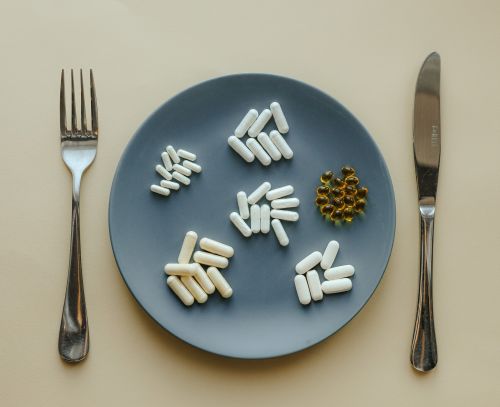
What are the best supplements for diabetes? While diet and lifestyle play starring roles in diabetes treatment, there’s a supporting cast of super supplements, vitamins, and minerals that can lower your blood glucose. Let’s dive into the top 10 supplements that can help you on your journey to a healthier you!
1. Magnificent Magnesium:
This mineral is a powerhouse when it comes to diabetes management. It helps regulate blood sugar levels, supports insulin sensitivity, and even plays a role in energy production. In fact, it’s used in at least 300 processes in your body. Most people are deficient in mag thanks to a poor diet and destructive agriculture practices. Load up on magnesium-rich foods like leafy greens and consider a supplement. There are many types of magnesium, but magnesium glycinate is one of the most popular. It’s an all-around good choice.
2. Vitamin D, the Sunshine Vitamin:
Step into the sunlight, because vitamin D3 is here to shine! This vitamin is one of the top supplements for diabetes because it is linked to improved insulin sensitivity. Soak up some sun (safely, of course) and include vitamin D-rich foods like fatty fish and fortified dairy products in your diet. Even 15 minutes a day in the morning sun can help. Supplements can quickly increase your vitamin D levels. Look for 10,000 units a day. Be sure to take K2 and magnesium with your D3 supplement.
3. Omega-3 Fatty Acids for the Win:
Omega-3 fatty acids are the unsung heroes of diabetes management. These healthy fats, found in fatty fish, grass-fed beef, and walnuts, can help lower inflammation, improve heart health, and boost insulin sensitivity. Consider adding an omega-3 supplement to your routine, and your body will thank you. High-quality cod-liver oil is a great choice.
4. B-Vitamin Brigade:
Say hello to the B-vitamin brigade – B6, B12, and folate! This trio supports nerve health, reduces inflammation, and assists in converting food into energy. Diabetes meds often deplete B vitamins. Low B vitamins can cause neuropathy symptoms. Load up on B-vitamin-rich foods like meat, eggs, and nutritional yeast, or consider a natural supplement to keep your diabetes-fighting B squad strong.
5. Chromium, the Blood Sugar Balancer:
Meet the blood sugar balancer, chromium. This trace mineral enhances insulin action, making it a valuable player in diabetes management. Broccoli and tomatoes are rich in chromium, or you can opt for a supplement.
6. R Alpha-Lipoic Acid, the Antioxidant Avenger:
Picture R alpha-lipoic acid as your antioxidant avenger. This compound helps neutralize harmful free radicals, reduces inflammation, and may improve insulin sensitivity. This makes it a top supplement for diabetes. It’s especially helpful for people with neuropathy. Find it in spinach, berries, broccoli, and yeast, or consider a supplement to give your body an antioxidant boost.
7. Cinnamon, the Flavorful Fighter:
Who knew your spice rack could be a secret weapon? Cinnamon isn’t just for flavor – it may also help lower blood sugar levels and improve insulin sensitivity. Sprinkle it on your morning oats or in your coffee for a tasty way to support your diabetes journey.
8. Probiotics, the Gut Guardians:
Gut health is all the rage, and for good reason! Probiotics, the friendly bacteria, play a role in maintaining a healthy gut, which can positively impact insulin sensitivity. Fermented foods like kefir are good sources, or grab a high-quality probiotic supplement that has a wide variety of bacteria strains to keep your gut guardians strong.
9. Zinc, the Immune Booster:
Enter zinc, the immune-boosting superhero! This mineral supports your immune system and may aid in wound healing, a common concern for individuals with diabetes. Load up on zinc-rich foods like meat and dairy, or look into a supplement. Usually you don’t need more than 50mg of total zinc a day.
10. Vanadium, a Blood Sugar Regulator:
Last but not least, meet vanadium. This trace mineral has been linked to improved insulin sensitivity and glucose metabolism. While it’s found in small amounts in mushrooms and seafood, you might consider a trace-mineral supplement.
Remember, these super supplements are here to complement your healthy lifestyle, not replace it. Before diving into the supplement sea, consult with your functional, holistic, or naturopathic healthcare provider. They can help you get tested for any deficiencies, too.
